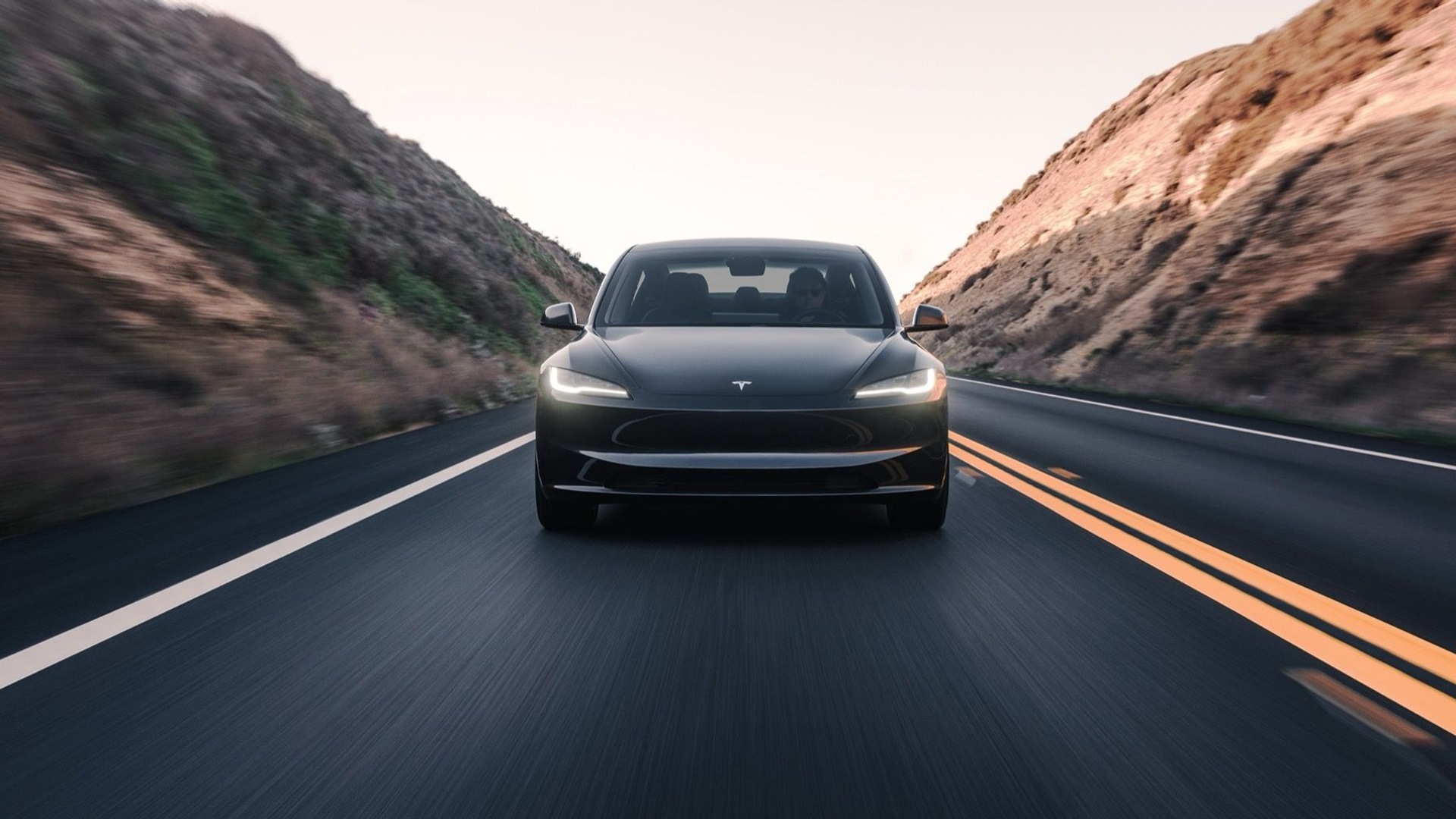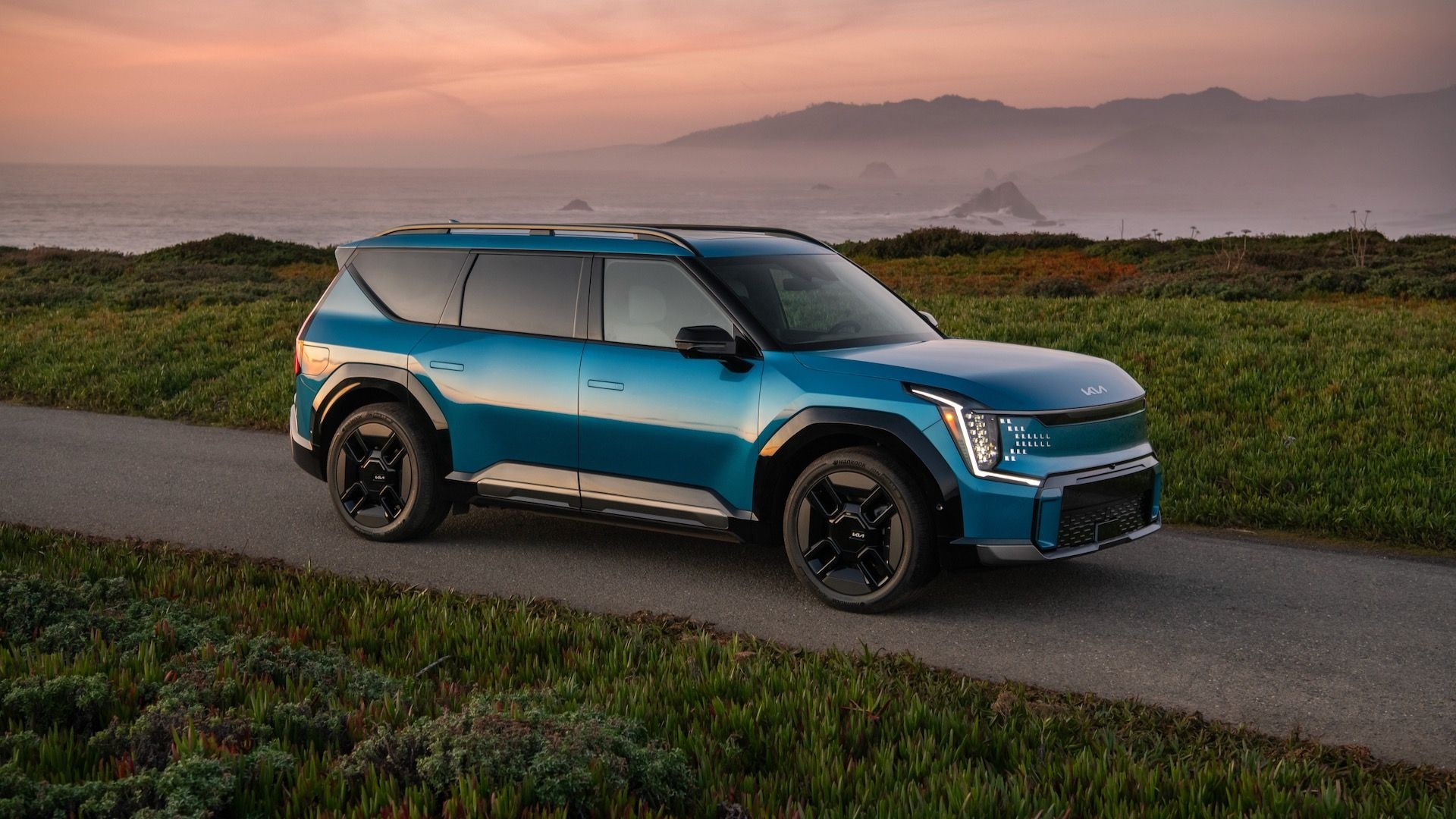The Megawatt Charging Standard (MCS) formalized just last summer will pave the way for more electric big rigs at the expense of hydrogen fuel-cell trucks, an electric-truck consultant predicts.
Enthusiasm for hydrogen fuel-cell passenger cars has largely played out, and megawatt charging will do the same for fuel-cell trucks, Rustam Kocher, former Charging Infrastructure Lead at Daimler Trucks North America, and now a consultant, said in a recent interview with Charged EVs.
Kocher is not positive about hydrogen, saying it's primary purpose is to be "a way that the oil and gas industry can stay relevant." Hydrogen could utilize fossil-fuel industry knowhow because it can be pumped through pipelines and stored in tanks like oil and natural gas, Kocher noted, but said hydrogen fuel cells are less efficient than batteries and "extremely expensive."
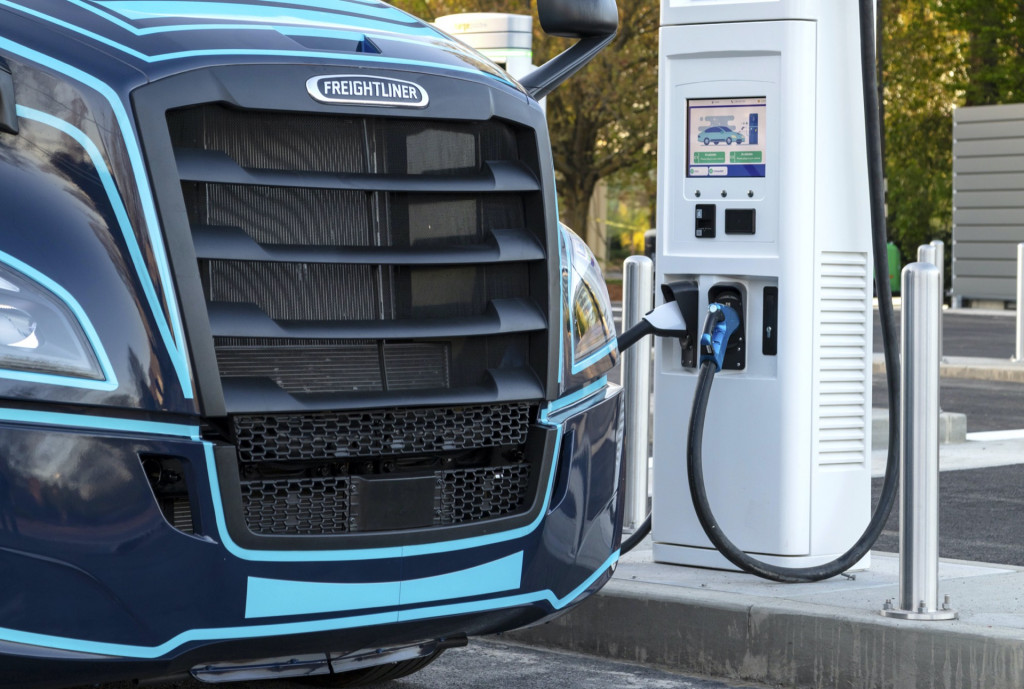
Electric Island - Daimler Trucks North America and PGE - Portland OR
"Big Oil's got a lot of resources and money to push this narrative" about the promise of hydrogen, Kocher said. But he believes megawatt charging will "put a bullet in hydrogen" by matching its quick refueling time, which he views as hydrogen's only potential advantage.
"With MCS, it's the same speed," he said. "In fact, it might be faster, so hydrogen can go pound salt."
When announced last summer, MCS was said to offer a "reasonable" charge time for Class 6, 7, and 8 commercial vehicles. These vehicles are expected to use very large battery packs, requiring much more power for rapid charging than the 350 kw that's currently the upper end for the Combined Charging Standard (CCS) used by passenger cars.
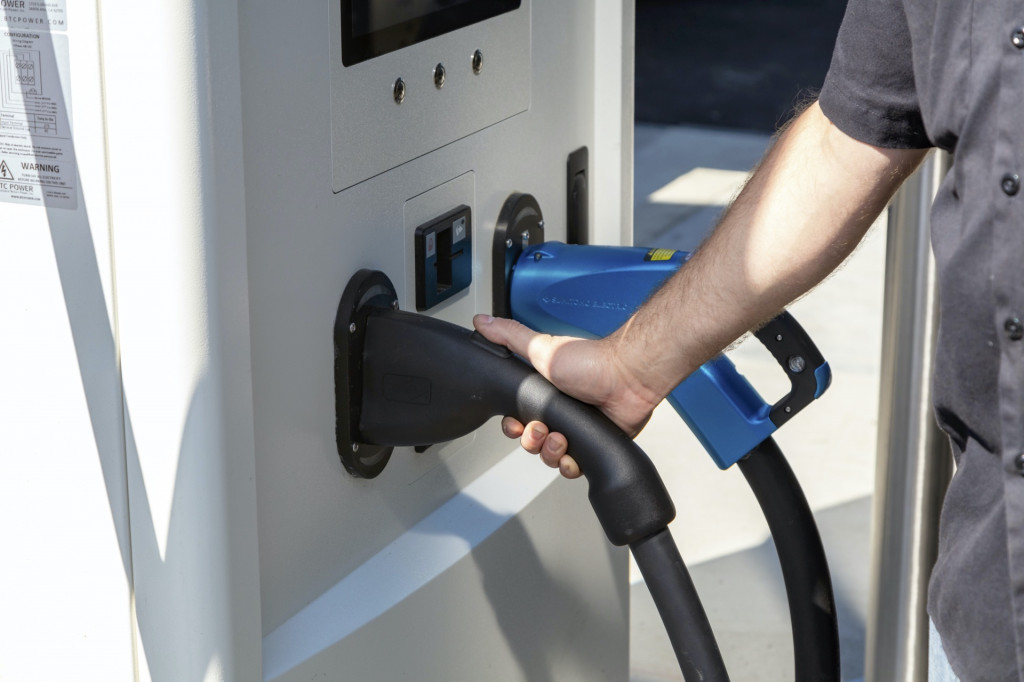
Electric Island - Daimler Trucks North America and PGE - Portland OR
MCS aims to deliver fast charging a package that, much like CCS, allows for charging stations to be compatible with vehicles from different manufacturers. Even Tesla, which went its own way with passenger-car fast charging, has confirmed megawatt charging tech for both the Cybertruck and Semi, but it hasn't signed on for the use of the cumbersome MCS connector.
Megawatt charging stations for trucks present tougher challenges for siting than those designed for passenger cars, however, because they not only need to make room for bigger trucks but be at a point in the grid that can support a power level of 10 MW or more.
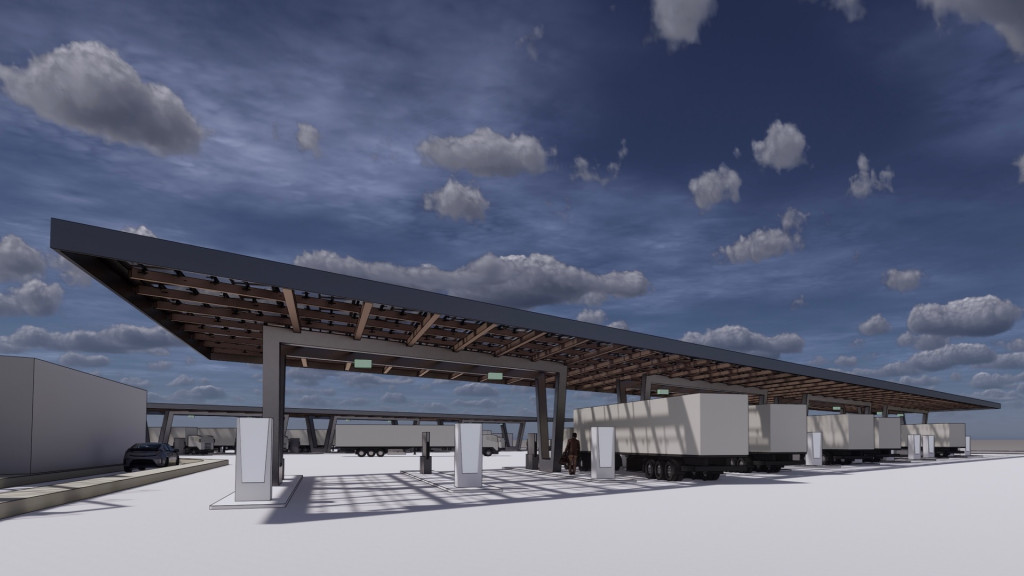
WattEV electric truck stop rendering
One of the first such stations is Portland's Electric Island site, developed by Daimler Trucks North America (Kocher's former employer) and utility Portland General Electric. Another template may be the electric truck stop planned by startup WattEV in Bakersfield, California, aiming for 40 charging stalls and 25 MW of solar-supplemented charging.
Perhaps more confusing though is that companies that have championed MCS—like Daimler Trucks—are also investing in hydrogen fueling. So it's fair to say the war between these technologies isn't anywhere near over yet.
